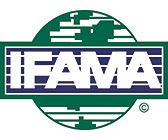| INTERNATIONAL FOOD AND AGRIBUSINESS MANAGEMENT ASSOCIATION |
|
General Statement
Food insecurity remains a pressing global challenge, exacerbated by conflict and fragility. In regions affected by violence, displacement, and weak governance, ensuring food access, availability, and utilization becomes even more critical. Additionally, supply chain disruptions due to conflict can exacerbate food insecurity, affecting vulnerable populations disproportionately.
Understanding the complex interplay between food insecurity, supply chains, and conflict dynamics is essential for effective policy formulation, humanitarian response, and sustainable development. This special issue aims to bridge research gaps and provide evidence-based insights to address these urgent issues.
Themes
We invite submissions related to the following themes:
1. Cultural and Extremist Threats
a. Investigating how cultural factors and extremist ideologies impact food security and supply chains.
b. Addressing challenges posed by cultural norms and extremist activities.
2. Currency, Inequality, and Trade Threats
a. Analyzing the effects of currency fluctuations, economic inequality, and trade disruptions on food availability.
b. Examining trade policies and their implications for supply chains in conflict-prone areas.
3. Health and Nutrition Threats
a. Assessing health-related risks (e.g., pandemics, malnutrition) and their impact on food security.
b. Exploring nutrition-sensitive supply chain interventions.
4. Migration Threats
a. Understanding how population displacement due to conflict affects food systems.
b. Investigating supply chain adaptations in response to migration flows.
5. Conflict-Induced Food Insecurity
a. Exploring the impact of conflict on food availability, access, and utilization.
b. Analyzing coping mechanisms adopted by households and communities in conflict-prone areas.
6. Supply Chain Resilience and Vulnerabilities
a. Investigating disruptions in food supply chains due to conflict.
b. Identifying vulnerabilities and opportunities for strengthening supply chains in fragile contexts.
7. Gender Dimensions of Food Security and Supply Chains
a. Examining how gender norms and roles influence food security outcomes.
b. Assessing gender-specific challenges in supply chain management during conflict.
8. Innovations and Interventions
a. Showcasing innovative approaches to mitigate food insecurity in conflict-affected regions.
b. Highlighting successful interventions that enhance supply chain resilience and promote food access.
Types of Submissions
We welcome two types of submissions:
1. Short Papers (up to 2000-4000 words)
a. These may include concise research findings, case studies, opinion pieces, or policy briefs.
b. Case-studies may contain real-world examples illustrating challenges, innovations, or best practices highlighting lessons learned from conflict-affected regions.
c. We encourage case studies of agribusiness supply chains from fragile areas.
d. Opinion pieces and policy briefs should not be politically motivated.
2. Long Papers (up to 8500 words)
a. Comprehensive research articles with rigorous methodologies.
b. Addressing multifaceted dimensions of the topic.
Potential Research Questions
Following are examples of possible research questions:
1. How do cultural norms and practices influence food security outcomes in conflict-prone areas?
2. What role do extremist ideologies play in disrupting food supply chains and exacerbating food insecurity?
3. How do currency fluctuations impact food availability and affordability in conflict-affected regions?
4. What are the implications of economic inequality for food access and distribution?
5. How do trade disruptions (e.g., sanctions, embargoes) affect supply chains and food security?
6. What health-related risks (e.g., pandemics, malnutrition) pose challenges to food security in conflict-prone areas?
7. How does population displacement due to conflict impact local food systems?
8. How can agribusiness supply chains adapt to ensure the delivery of nutritious food during health crises or to accommodate the movement of displaced populations?
9. How can food security be maintained for both host communities and migrants during displacement?
10. How do conflict-induced disruptions impact food supply chains, and what are the implications for food security?
11. What role do local institutions and governance structures play in mitigating food insecurity during conflict?
12. How can gender-sensitive approaches enhance food access and supply chain resilience in fragile areas?
13. What innovative solutions have proven effective in ensuring food availability and distribution in conflict-prone regions?
Submission Guidelines
- We encourage the submission of an extended Abstract (up to 1000 words) by September 15, 2024. Submitted Abstracts will receive critical feedback from the Guest Editors. Abstracts receiving favorable reviews would also be fast tracked in the review process for publication. Full papers are due on November 15, 2024.
- Manuscripts should adhere to the specified word limits.
- All submissions will undergo initial review by the Guest Editors before undergoing a double-blind peer review process.
- Accepted papers will contribute to evidence-based policy and practice.
Please upload your contributions here.
When prompted, select: "SI: Food Insecurity and Supply Chain Issues".
For inquiries, please contact Guest Editor, Shahriar Kibriya: shahriar.kibriya@gmail.com.

